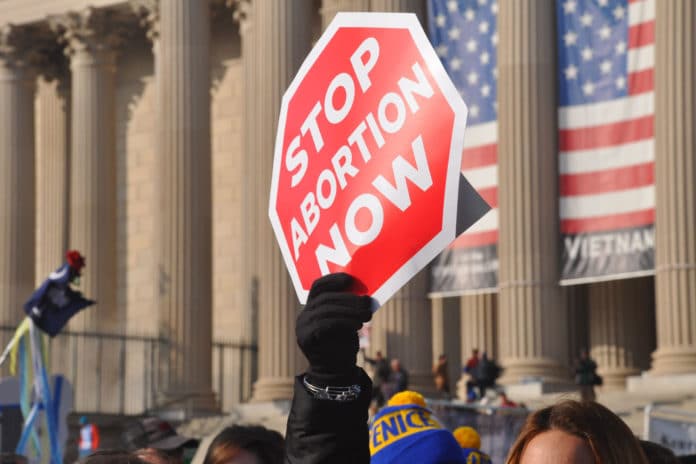(Daily Caller News Foundation) — Roe v. Wade is dead. It is difficult to overstate the momentousness of this occasion. Today’s Supreme Court decision in Dobbs v. Jackson Women’s Health Organization will go down in history as among the most significant events in modern American politics. For pro-lifers, it is an achievement long dreamed of, and yet one that few dared hope for until recently.
After 49 years under the absurd legal regime of Roe and its progeny, Dobbs is a seismic change. It will, in the immediate term, likely preserve the lives of countless unborn children. It will save many women from the misery and abuse of coercive abortionists. It will also affect our politics in ways America’s leaders are only just beginning to grapple with.
Now that the barbarity of abortion can once again be legally restricted, if not outlawed entirely, who will do it? How will the issue be addressed legislatively after having been left in the hands of unelected jurists for decades? Will Congress assume its 14th Amendment duty to “enforce, by appropriate legislation,” these unborn persons’ right to life, as some pro-lifers have urged?
Many other commentators will offer their answers to these questions in the days ahead. The pro-life movement is uniquely lucky to have numerous talented thinkers who have been preparing for this day for, in many cases, most of their lives. The other side, meanwhile, is despondent. When the Dobbs draft decision first leaked, pro-abortion activists took to Twitter to vent their anger — a vitriolic outpouring of the kind of rage currently fueling a run of terrorist attacks on crisis pregnancy centers nationwide.
Unfortunately, such incidents are only likely to worsen in this ruling’s aftermath.
In a strange twist, however, the end of Roe has also brought to the fore another issue, one that is likely to be magnified in the coming weeks: the breakdown of the American family.
Following the Dobbs leak, some on the pro-abortion side began posing the question to pro-lifers — if women can’t abort their children, should men be able to abandon them? Wouldn’t it be better if men had to, by some legal obligation, provide for their child and their child’s mother?
Most of the time, such questions are offered as a way to dodge the real issue, or a bad-faith attempt to expose hypocrisy. But in this case, abortion advocates have truly arrived at the heart of the matter, though it may not provide them the “gotcha” moment they expected.
A re-emphasis on marriage and the family will be necessary in a post-Roe world, in one way or another. The death of Roe is a victory for the family already. Roe stood as the keystone of an entire philosophy that sees families, or family formation, as a shackle on personal freedom.
It regards children, in the best of times, as optional, or disposable. More often it sees them, in the words of former President Barack Obama, as a punishment. The idea that man, woman, and children together make a family never saw a more formidable enemy than the life-killing regime exemplified by Roe.
Janet Yellen, ironically enough, co-authored an excellent paper earlier in her career about the damage the sexual revolution, of which Roe was a part, had done to the formation of families, specifically by destroying the expectation for so-called “shotgun” weddings. Access to abortifacients and abortion clinics led to an expectation that children could and ought to be easily disposed of, should they arise.
Children were now perceived as an “unnatural” consequence of sex. And once women could choose whether to keep the baby, men started reasoning they could choose whether to care about it. It led, in Yellen’s estimation, to the immense immiseration of women and, as we see now, practically everyone else too.
It’s not exactly surprising that the 50-year quest to build personal happiness, security, and freedom off of the suffering of women and the killing of infants has failed. America has learned the lesson before that such goods cannot be bought at the price of denying another’s humanity. But we should all recognize that these things — happiness, security, stability, true freedom and flourishing — really are created, bolstered and preserved by the family more than any other natural institution.
The pro-abortion movement offered a perversion of the family as the key to happiness. They put this false liberation at the center of their political message, the center of their policies, and the center of their defining philosophy. Since then, it has tried to seep its way into every major bill, and every bureaucratic action of the administrative state, often in completely (it seemed) unrelated areas.
We, meanwhile, have the real answer. We shouldn’t hesitate to put the family at the center of our politics with at least as much zeal as the other side has put its counterpart. The anti-Roe project won’t be complete until we can. Today is the greatest victory pro-family advocates have had in recent memory, by far, and it is the first necessary step for everything else we must do. We should celebrate today. We have a lot of work ahead of us.

















